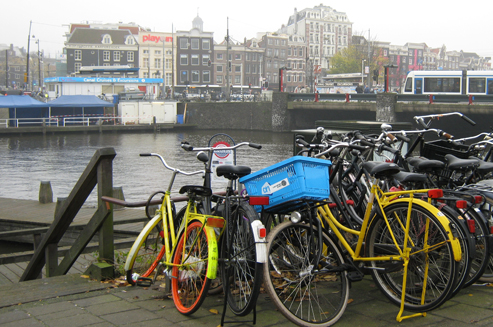The expansion of the European Union towards the East has initiated migration flows from the countries of Central and East and Europe. People of Polish origin today make up by far the largest component in annual migration to the Netherlands, even when compared with non-Western migrant groups. The recent study by The Netherlands Institute for Social Research (SCP – Sociaal en Cultureel Planbureau) reports on the life situation of Polish migrants shortly after they have migrated to the Netherlands, and explore the characteristics of these migrants. It is estimated that between 160.000 and 180.000 people of Polish origin are living in the Netherlands.
The majority of young Polish adults (aged between 20 and 35 years) who have not been in the Netherlands for very long have completed an education up to the initial qualification level for the Dutch labour market more than a primary education background. The recent group of Polish migrants is well educated. Poles stand out with a share of 70% which is trained at MBO level (vocational training). This proportion is similar to the native population.
Education of Polish people living in the Netherlands, 2011 (in %)
Basic education – 3%
Vbo (prevocational education) /mavo (junior general secondary education) – 27%
Mbo (Secondary Vocational Education)/havo/vwo (Pre-university education) – 51%
Hbo (professional education) /wo (university education)- 19%.
The majority of recently migrated Poles came to the Netherlands for work (80%); a smaller proportion came for family reasons (14% ). Most of the migrants from Poland are young: three-quarters are aged under 36 years. Most recently migrated Poles – 84% – have a job in the Netherlands.
Polish migrants are also often employed in the construction industry, as well as in agriculture, horticulture and the industrial sector. “Also striking is the high proportion of Poles with a higher education qualification who are employed in elementary occupations; in many cases, their work in the Netherlands is far below their qualification level” – reveals the report.
Polish migrants have been able to settle in the Netherlands without a residence permit since 2004, and since 2007 no longer need a work permit. Not all migrants from Poland are entered in the population register (Municipal Personal Records Database, gba); this is only mandatory if they plan to stay in the Netherlands for longer than four months. According to the most recent estimates (Van der Heijden et al. 2013), the majority (77%) of Polish people living in the Netherlands are registered (either in the gba or the wnb).
More information to download:
*Report is based on a survey held in late 2010/early 2011 among migrants from Poland and Bulgaria who were entered in the population registers in the Netherlands in 2009 or 2010. A total of around 800 Poles and roughly 400 Bulgarians were interviewed. All surveys were administered within 18 months of entry in the population register and were conducted in the migrants’ mother tongue using interviewers from their own origin group.
Many thanks to Thomas Karawajczyk representing The Forum of Polish Schools in the Netherlands for helping with translation of the educational levels.
Photo © Grzegorz Chec


